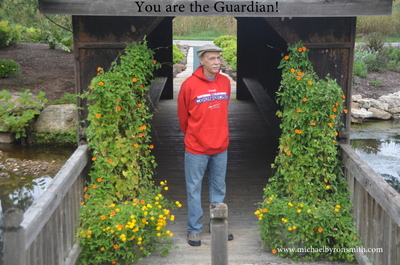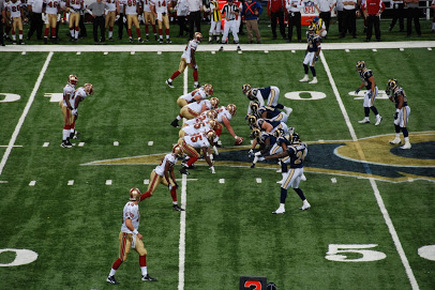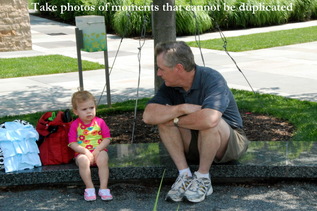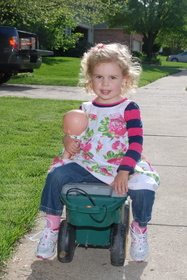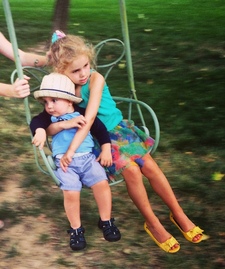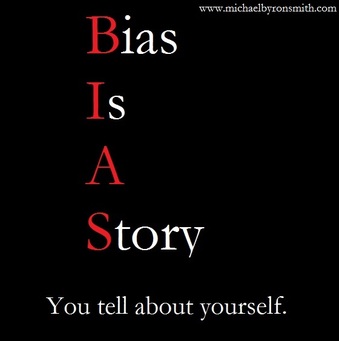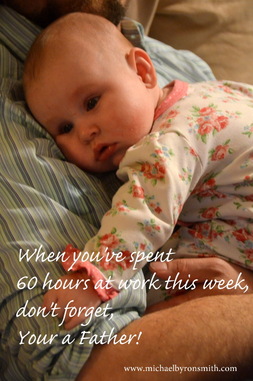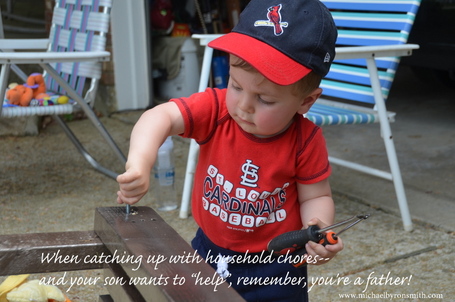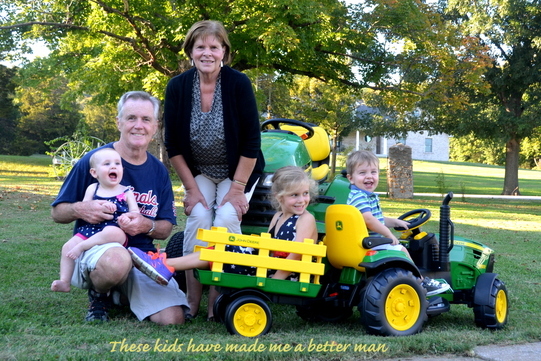
In a report to the August 2000 meeting of the American Sociological Association, a study of father’s interaction with their children in intact two parent families stated that nearly 90% of the fathers surveyed said that being a father is the most fulfilling role a man can have.
That is certainly true in my experience. When I was a kid, I had a dream of being a jet pilot. I was fortunate enough to fulfill that childhood dream. It was challenging and satisfying to have done so. But what do I have left from that now that I am retired? Memories? Yes, good memories for sure, but they hardly measure up to, not only the memories I have of my family, but the accomplishments of my children and the joy they have brought into to my life!
I have a friend from college who just visited me from Los Angeles. He recently retired, never married and is an only child to parents who have long since passed away. He was telling me how simple Christmas is to him. He just asks himself what he wants for Christmas and then he goes and buys it—and he’s done. Now if you just said wistfully, “I wish it were that easy for me.” Then you are most likely kidding yourself. I used to look forward to Christmas. Then I didn’t. Now I do again. Why? I had kids. The kids grew up. Now I have grand kids!
My college friend has a few friends but they are usually busy with their families, especially on holidays. Or maybe they are busy with their kids’ activities. My friend has never been to a children’s soccer game, coached a baseball game, cheered a son in basketball, or watched a daughter’s dance recital. He may have never wanted to do these things, and there have been times I didn’t want to do these things either. But I am so happy I did! My friend will never know the pure joy of being a grandfather, because you have to be a father first. Being a grandparent is something that has been more fun than I ever imagined, and far less work!
Just this week, my wife and I bought our grandchildren a child’s toy riding tractor. We unveiled it the day before I wrote this and watching them enjoy it, and their happy faces made that purchase pay back a hundred times more than what I would have spent on myself. After all, happiness is the desire to give, especially to kids, and more especially when they are yours.
Having kids is an incentive for anyone to achieve more, to learn more, to be more responsible, to be more involved in the community, to interact with other family members, to meet more people with kids, and even to live longer. When you are a young man, you want to achieve for yourself. When you are an older man, you may more likely want to achieve for others. Family and children fill this need perfectly.
I truly respect men who do not want children and do all they can do not to have them. It’s responsible, honest, and respectful. But if you have brought children in this world, you also have to be responsible, honest and respectful with the choice you have made. You will be a better man for it!
There was a line in the movie “As Good As It Gets” when Jack Nicholson says to Helen Hunt, “You make me want to be a better man.” Well, that may be true for us when we meet ‘the one’. However, when you have children, you really should want to be a better man! If that’s not true for you, then spend Christmas with yourself and/or your single buddies. It’s okay with me if it’s okay with you.

